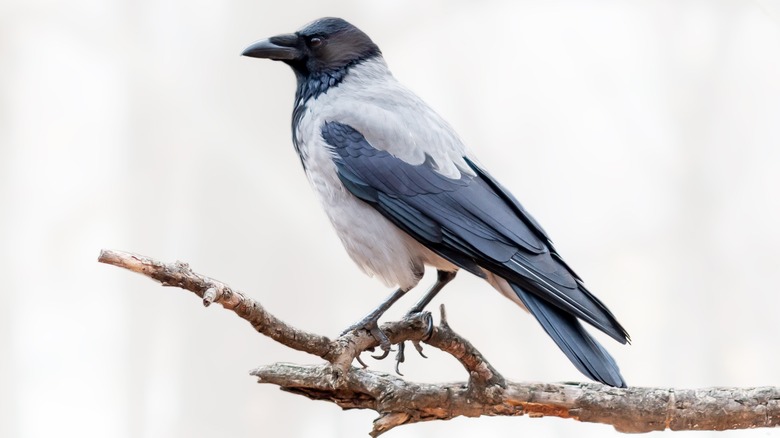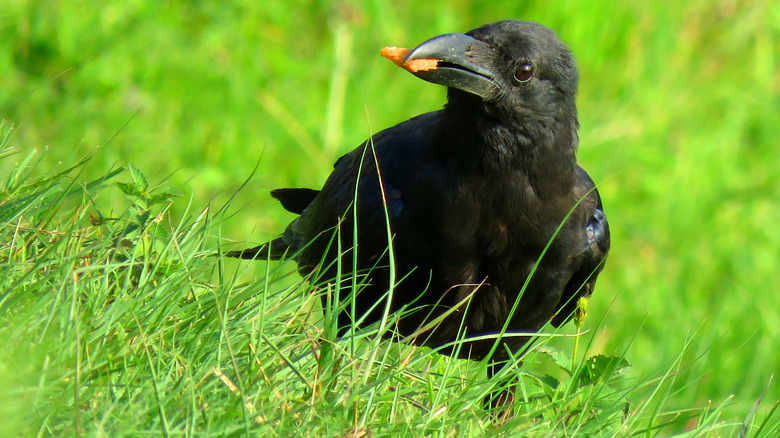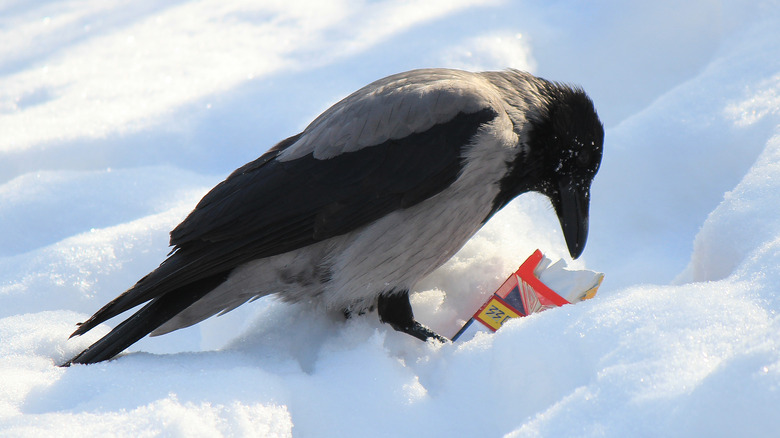Crows Are More Intelligent Than You Think
We all know that the phrase "bird-brained" isn't exactly a compliment. While it's true that the majority of birds aren't exactly designed to perform complex arithmetic, there are certain winged species that have far more impressive brains than most of us realize.
When asked to guess which birds are the most intelligent, it would be tempting, surely, to think of the owl. That iconography goes all the way back to Ancient Greece, when the bird was commonly pictured alongside the Goddess Athena as a symbol of wisdom. The truth is that owls aren't as intelligent as we might like to think. The birds with really impressive brainpower are actually corvids, the family of birds that includes crows. Most famously, crows have been the subject of numerous eye-opening experiments, which have revealed the species' incredibly adept use of tools, an indicator of high intelligence and a skill reserved for the smartest creatures on the planet.
As a 2018 paper published in Nature shows, birds such as the New Caledonian crow are not only capable of using objects such as twigs and stones to access hard-to-reach food — for example, insects deep in the bark of a tree — but they can also combine objects to fashion new tools to achieve their goals. In the experiment, one crow, named Mango, was able to combine four elements to create a pole long enough to access food. The same report notes that such complex toolmaking only becomes possible among human children between the ages of 5 and 9.
Crows are capable of reflection
It has become increasingly clear in recent years that as well as being innovative problem solvers, corvids experience inner lives comparable to those of humans and other intelligent creatures. Incredible evidence from recent studies has suggested that crows in particular experience consciousness in much the same way humans do, while longtime researchers working with corvids have noted their sophisticated social abilities, according to Discover Magazine.
In particular, John Marzluff, at the University of Washington, has make startling discoveries, over the course of three decades, during his interactions with the crows that live on campus. Marzluff notes that having worn a certain mask to capture birds for study in the early days of his career, the same mask elicits an aggressive response from the local bird population, and that the otherwise friendly birds begin to "harass" the wearer in large groups, suggesting that crows have the amazing ability to recognize human faces.
Although crows have relatively tiny brains compared to humans and other primates, their diminutive stature doesn't limit their potential brainpower quite as much as you might expect. Writing in Science, Suzana Herculano-Houzel notes that despite the comparatively small size of bird craniums and the brains inside them, the surprisingly high intelligence of creatures such as corvids can be explained by the make-up of that brain itself, specifically the density of their neurons, which are more compact than those of creatures such as humans and apes. "Because their neurons are smaller, the pallium of songbirds and parrots actually comprises many more information-processing neuronal units than the equivalent-sized mammalian cortices," Herculano-Houzel claims.
Crows can differentiate between types of objects
Both scientists and entrepreneurs have begun to envision a future in which humans and corvids might work together harmoniously to solve problems. In January 2022, it was announced that the Swedish town of Södertälje had come up with an ingenious way of tackling the area's long-running litter problem: employ the local birds.
Per The Guardian, a Swedish company named Corvid Cleaning recently started offering a service by which trained crows are used to collect pieces of trash, such as cigarette butts, and are paid for the task in the form of food. "They are wild birds taking part on a voluntary basis," explained Christian Günther-Hanssen, the owner of Corvid Cleaning.
In 2008, NPR reported that a hacker named Josh Klein had recently presented attendees at a TED conference with his "crow vending machine," in which crows find coins and insert them into a slot to be rewarded with a peanut. Klein noted that crows could be taught to assist humans in a variety of ways, most impressively by exploiting their ability to recognize human faces to help on search-and-rescue operations. (A short version of Klein's explanation is posted on YouTube.)


